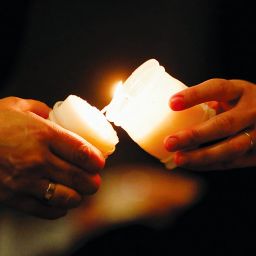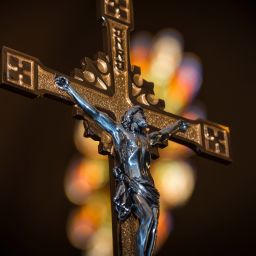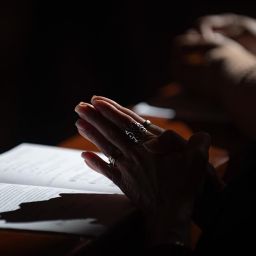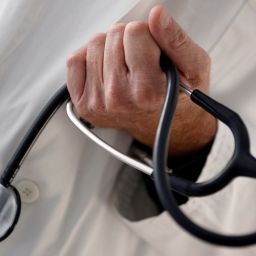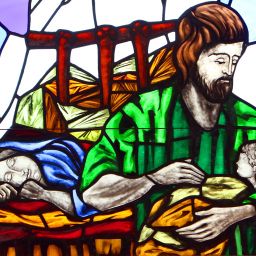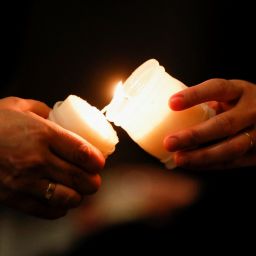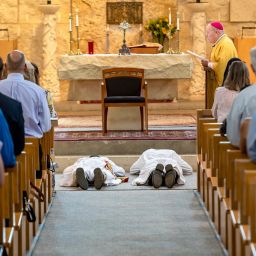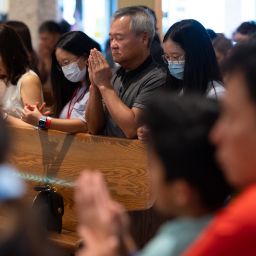By Father John Bayer
Special to The Texas Catholic
Our diocese is blessed by the presence of institutions like the Catholic Medical Guild of Dallas and the St. Basil Society. Catholic medical professionals should look up these institutions, because they can find in them opportunities for friendship, networking and important continuing formation. Especially today this solidarity is important, for strange things are happening in secular guilds. I have heard of one secular guild that encourages puberty suppression and the injection of cross-sex hormones in children with gender dysphoria. Of all people, doctors should be able to imagine the dangers of such dramatic tampering with endogenous hormones. Their failure shows how smart experts in science and technology still need help — like the rest of us — when it comes to finding wisdom. Catholic guilds should try to help.
I’m blessed to know medical doctors, professors and students who want to integrate Catholic faith into medicine. Such a desire makes sense, given how Catholicism assisted in many ways at the birth of modern medicine. In the fourth century, St. Basil founded what could be considered the first public hospital, or a place where diseases were studied and sick people treated. University education emerged in the Catholic culture of the Middle Ages, and many important medical scientists were Catholics (for example, Andreas Vesalius, the father of modern anatomy, and Jerome Lejeune, the pro-life advocate who discovered the link between many diseases and chromosomal abnormalities). Some of these scientists were priests whose work was directly supported by the Church (for example, Father Gregor Mendel who put the “Mendel” in Mendelian Genetics).
But Catholic faith is not only historically important to medicine. I just read “But Catholic faith is not only historically important to medicine. I just read “The Lost Art of Dying,” which showed me how important it is today as we care for the dying. The author, L.S. Dugdale, is a medical doctor writing from a secular perspective, but she is open to religious wisdom as she challenges the myopic focus of contemporary medicine upon extending life at all costs, even at the cost of ignoring our mortality and failing to help people prepare well for their deaths. Of course, medical interventions should aim at life. But there comes a time when medical interventions are no longer able to do that, and our focus then should shift from prolonging life to dying well.
To fear death is natural. Life is good and we rightly desire it. Jesus himself wept before his Passion. Still, just like Jesus, loving life should not lead us to ignore or refuse death at all costs. We should instead prepare for it and pray, “My Father, if it is not possible that this cup pass without my drinking it, your will be done!” (Mt 26:42).
In fact, death raises many questions we need to consider, and in some way answer, if we want to live well. I don’t think Dugdale quite gets Christianity, but she sure seems to me to appreciate the existential stakes of death when she affirms, “to die well, even for the atheist, is to believe that there is some way of dying into life rather than simply away from it, some form of survival that love makes possible.” That seems so well said to me. At least in my experience, people from all backgrounds, Catholic or not, long for a credible reason to believe that love conquers death. That means that the unbroken historical witness of the Catholic Church to Jesus’ resurrection is not an unimportant fact. In fact, it is hard to imagine anything more vital than Jesus. Or do you know a more compelling reason to believe in the final victory of love? Maybe you too have family and friends longing to know “the reason for your hope” (1 Peter 3:15). To the Catholic medical professionals reading this, I ask how many of your patients know what you hope, or that what you hope for is what they probably hope for too — the victory of love? How many of your patients know that you have a most powerful reason for this hope? And how many might be eternally grateful if you found the right way to share it?
We should all consider when and how to prepare for our deaths. Preparing for our death is a salutary meditation, one that Catholic spirituality has always valued. We ought also to help our families and friends prepare for their deaths. In this respect, Catholic medical professionals have a special role, since they care regularly for people who are facing their morality, and they have a great authority as men and women of science. They are therefore able to encourage people to appreciate modern medicine and yet also wisely to relativize it before our highest goal in life — loving surrender to God. Catholic medical professionals can help us throughout our lives to prepare for our deaths, for that time when — instead of allowing ourselves to be fixed onto what Dugdale calls the mindless “conveyer belt” of modern medicine — we can focus on reconciling with God and our neighbor, blessing our family and friends, and releasing ourselves with peace into the loving hands of our Creator.
Father John Bayer, O. Cist., is a monk at the Cistercian Abbey of Our Lady of Dallas in Irving.


